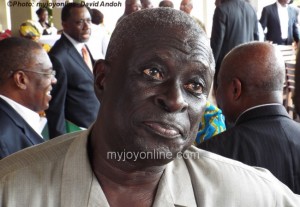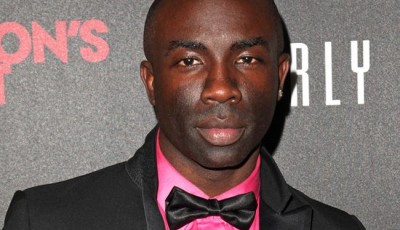Warning: Undefined array key "dirname" in /home/anapuafm/public_html/wp-content/themes/anapuafm/include/plugin/filosofo-image/filosofo-custom-image-sizes.php on line 133
Warning: Undefined array key "extension" in /home/anapuafm/public_html/wp-content/themes/anapuafm/include/plugin/filosofo-image/filosofo-custom-image-sizes.php on line 134
Manasseh’s Folder: P V Obeng and the unknown taxi driver
 Last weekend Ghana lost one of its most influential statesmen. Paul Victor Obeng, according to those who have lived long enough to know, was one time described as the Prime Minister of our republic. In fact, for the past three decades he has been a very key figure in the governance of this country.
Last weekend Ghana lost one of its most influential statesmen. Paul Victor Obeng, according to those who have lived long enough to know, was one time described as the Prime Minister of our republic. In fact, for the past three decades he has been a very key figure in the governance of this country.
At the time of his death, PV Obeng was a senior advisor to the President and Chairman of the National Development Planning Commission as well as chairman or board member of many state and private organisations.
I do not know much about PV Obeng and would not pretend to have any personal encounter with him. The first time I came face-to-face with PV Obeng was two years ago when the Institute of Economic Affairs hosted a Ugandan delegation led by its Prime Minister to understudy and learn from Ghana’s democratic experience.
The late PV Obeng moderated the discussion and I drew my conclusion about him a few minutes after he first spoke. He was a very intelligent man with enormous knowledge about our country. Since then, anytime his name came up and I happened to be around, I would remark: “That man is very intelligent.”
The second and last time I paid attention to PV Obeng was when he chaired the committee that reviewed the GYEEDA Report and advised the President on the course of action. Unfortunately, I was not impressed with the committee’s work after reading government’s action paper on the GYEEDA report.
In a haste to release the report and the action paper on the eve of the Supreme Court ruling, the Information and Media Relations Ministry mistakenly forwarded the draft action paper with all the remarks so some of us were privy to some issues which did not come public.
The PV Obeng Committee watered down the GYEEDA scandal to lack of legal and institutional framework. I thought that was not an honest approach to dealing with rot, which had crippled the programme meant to help the jobless youth. For this reason, I didn’t have very positive opinion about the late PV Obeng afterwards.
Fortunately, what I think of him doesn’t matter. In the same way, the numerous praise-singing and eulogies from those who find my assessment offensive do not matter. The only thing which matters to him is what his Maker, the righteous judge of Israel thinks of him, “For it is appointed unto men once to die, but after this the judgment” (Hebrews 9:27).
In recent times, the nation has lost very prominent sons and daughters, people we thought were too influential, rich or famous to die at the ages they did. President John Mahama said at PV Obeng’s house that in cases such as this, one is tempted to question God why he allows such people to go.
Instead of questioning God, I think the most important thing to do is to take the lessons inherent in such deaths. If the President of the republic and people who can afford the best of healthcare die before their old age, then it reminds us of how fleeting life on this earth is. Death is no respecter of persons. No one can beat their chest and say I must be alive tomorrow.
People who saw PV Obeng at the National Economic Forum last week said he looked very healthy, full of life. He played a key role in the conference and it wouldn’t cross anyone leaving Senchi that they wouldn’t see him again. When he jumped behind the steering wheel of his vehicle that Saturday afternoon, nobody knew, he was driving for the last time. Nobody knew that the Spintex Road would be his last route. And so it is with everybody.
According officials of the Lekma Hospital, he was brought there by taxi driver. This taxi driver, we are told, was driving behind PV’s vehicle and realised that the vehicle had stopped in an abnormal way. He then got down and realised that the occupant of the vehicle was struggling. The taxi driver then pulled the Senior Presidential Advisor, Chairman of the National Development Planning Commission, Chairman of the KNUST Governing Board and one time virtual Prime Minister into the taxi and took him to the hospital.
Considering how deplorable our taxis are, it is almost impossible to imagine that PV would ever have hailed a taxi at that stage of his life onwards. But he had to end his journey on earth in a rickety cab no matter how luxurious his own vehicles were.
President Mahama said when he heard that PV had collapsed, he ordered the regional Minister to get the 37 Military Hospital prepare standby. He said they should get an ambulance to fetch him wherever he was and attend to him. Not many Ghanaians would have the president giving orders on our treatment. Unfortunately it was too late.
It is very painful to lose such a great son of the nation at a time his role in fixing our ailing economy was very relevant. Apart from his immediate family, many people are devastated by PV’s death. Early this year, we were shocked by the death of Komla Dumor, and a few weeks ago, Kofi Ansah, one of the finest fashion designers this nation has produced, also left unannounced.
While we mourn, sing genuine and insincere praises, one thing we should remember is that it could have been any of us. When the moment of truth arrives, our fame, wealth, beauty or influence do not count. All becomes vanity and chasing after the wind as Ecclesiastes teaches us. After elaborate planning, we end up in gave, no matter the number of mansions we built in our lifetime.
We don’t go with a pesewa of what we struggled to earn. What matters most is how we conducted ourselves, how we impacted society positively, while we still had breath.
We must not amass and hoard wealth while the others starve to death. We don’t know our maker’s timetable for us. And when that time comes, our wealth will not count. Our influence will not count. Nothing can save us. All is vanity if someone does not say, I am where I am or I have achieved my dream because this person offered me a helping hand.
When the seventy-two people Jesus Christ appointed in Luke 10 to go ahead of him to proclaim the gospel returned, they were very happy and proud of their achievements:
“…Lord, even the demons submit to us in your name.”
‘He replied, “I saw Satan fall like lightning from heaven. I have given you authority to trample on snakes and scorpions and to overcome all the power of the enemy, nothing will harm you.
“However, do not rejoice that the spirits submit to you, but rejoice that your names are written in heaven” (Luke 10:17-20).
Death is certainly uncertain. We know we will all die. My Gurune (Frafra) people have a saying that “Asaala dage kugre,” to wit no human being is a stone. What we don’t know is when, where and how we will go.
What is certain is that when that day comes, our wealth or influence would not matter. What matters is whether our names are written in heaven.
Is your name written in heaven? If your answer is no, then the decision to have it written is today. Tomorrow is not guaranteed.




